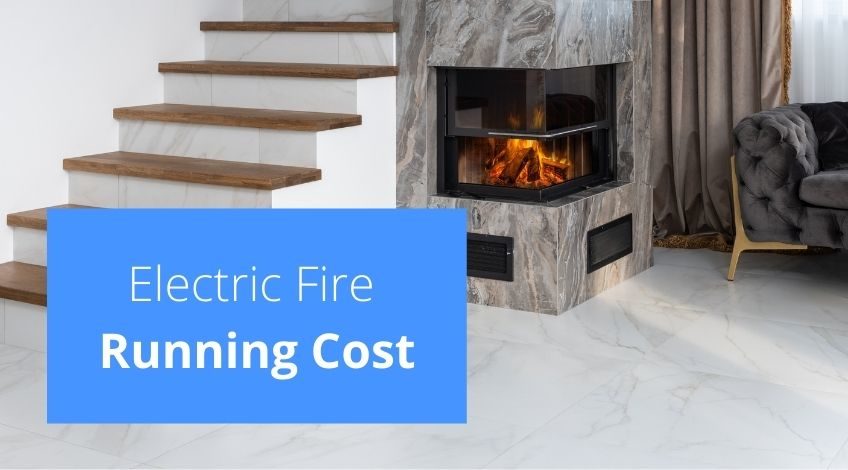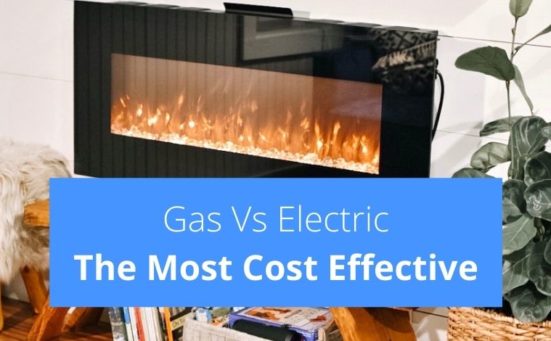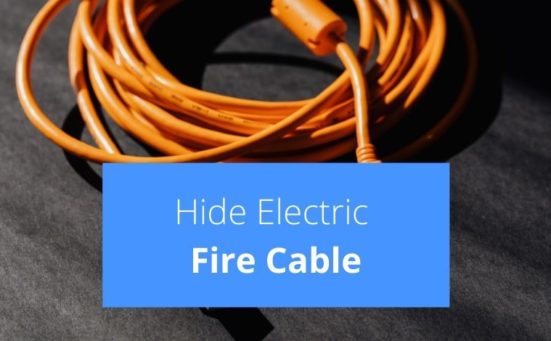
How Much Does An Electric Fire Cost To Run?
We often get asked this question, so we thought we’d clear it up once and for all. The answer is not as straightforward as you might think. This is because it depends on a few factors, like the wattage of the fire, and how much your utility company charges for electricity. Let’s look at the wattage first.
What Is The Wattage Of An Electric Fire?
This is how electrical power is quantified, the higher the wattage, the more power the fire will have and the faster it will reach the desired temperature. The higher the power, the more it costs to run as well but more on that later. Electric fires start at around 600 watts and rise to 3000 watts.
The average wattage for an electric fire is 1500 watts, but most have 2 heat settings, typically 600 and 1200, or 1000 and 2000. As we said earlier, the wattage rating determines how much power the fire is able to use.
How Do Utility Companies Charge For Electricity?
The rate electricity companies charge is by the kilowatts used per hour, this is signified by the following characters kW/h which represents kilowatts per hour. This gives us a slight problem, we know the wattage of the fire, but they charge in kilowatts not watts. To convert watts to kilowatts divide by 1000.
For instance 1500 watts divided by 1000 equals 1.5 kilowatts, and looks like this:
1500 ÷ 1000 = 1.5
Now we have our kilowatts, we need to look at our electricity bill and see how much they charge for a unit of electricity. It will be something like cost per unit is 18.54 pence kW/h. This means a 1 kW fire will cost 18.54 pence per hour of running time.
Using our 1.5 kW fire and the average cost per unit or electricity at 18.54 pence we can see it would cost 27.81 pence to use that fire for 1 hour. The equation looks like this:
18.54 x 1.5 = 27.81
How Much Does It Cost To Run An Electric Fire?
We now have our cost per unit (in this case 18.54 pence per kW/h) so all we need is the actual wattage rating and the sums are easy to work out.
Costings Per Hour For Power Ratings Per Hour At 18.54 Pence Per Unit
| Wattage | Cost Per Hour |
|---|---|
| 500 watts (0.5 kW) | 9.27 pence |
| 800 watts (0.8 kW) | 14.83 pence |
| 1000 watts (1 kW) | 18.54 pence |
| 1200 watts (1.2 kW) | 22.25 pence |
| 1500 watts (1.5 kW) | 27.81 pence |
| 2000 watts (2 kW) | 37.08 pence |
| 2500 watts (2.5 kW) | 46.35 pence |
| 3000 watts (3 kW) | 55.62 pence |
This is based on maximum power for each wattage value, if you used the lower setting option it would naturally cost less. Just compare the 1 kW with the 2 kW to see the difference.
Electric Fires Compared With Other Types Of Fire
So we now know how much it costs to run an electric fire, but what about other types of fire?
Let’s compare the costs of each type of fire per kilowatt.
| Type Of Fire (1 kW) | Cost Per Hour (1 kW/h) |
|---|---|
| Electric 1kw | 18.54 pence |
| Gas Fire (Flueless) 1kW | 5 pence |
| Wood Burner Approx 1kW Bought wood | 23.5 pence |
| Open Wood Fire 1kW Bought wood | 80 pence |
| Gas Fire (open Flame) 1kW | 40 pence |
As you can see electric is not the cheapest, but it’s not the dearest either. Electricity comes in second out of 5. But when judged by environmental damage, electricity produces no harmful greenhouse gases, no poisons and no smoke.
Energy-efficiency
When looking at the figures for energy-efficiency, electric fires are 100% energy-efficient because all of the energy they consume is converted to heat. Whereas open wood burning fires can be as low as 10% efficient, log burning stoves 75% efficient and gas fires 50% efficient.
Popular Electric Fires
- 【40inch Electric Fire】: 102 cm wide electric fires, Front Size: 101.6x34.1x14.2cm(WxHxD); Back Size: 98x30.6x14.2cm(WxHxD); Insert Size: 99.2x32.3x15.2cm(WxHxD). This electric fireplace supports 3 mounting styles: freestanding, wall mounted, recessed into the wall. The air vent is on the upper front area,the hot air will blow to the front, so the wall fire can be perfectly standed or installed in the living room under the TV or your entertainment center and bedroom.
- 【Remote and Touch Screen Control】: Remote and touch screen make it more convenient to control every function of electric wall mount fireplace: power switch, timer settings(1-8hr), flame color(9 colors), flame dimmer(5 brightness ), thermostat control(16℃-28℃) and 3 heat settings(heater off & 900W & 1800W).
- 2 HEATING OPTIONS: Choose from 1000W and 2000W of power and get your living room heated effectively
- MODERN INSET STYLE: Fit the heater neatly against the wall and help save vital space in your home
- CREATE CALMING AMBIENCE: Achieve the charm of a log burning stove without the hassle with your VonHaus electric stove heater; watch the realistic LED flame fill your room with a gorgeous warming glow.
- COMPACT & PORTABLE: Measuring H52 x W38 x D26cm, your traditionally designed portable stove heater effectively heats rooms up to 17m², acting as a cosy focal point for hosting family gatherings.
- 100% LED lighting with realistic flame effect can be used with or without heater, 9 flame colour options.
- Easy to install, designed for a quick and easy installation into a 16" or 18" fireplace opening, perfect for replacing an existing electric or gas fire.
- STYLISH INSET ELECTRIC FIRE – The Clement has a classic black finish with striking, realistic log effect LED fuel bed;One piece frame designed to fit 16” or 18” fireplace opening
- OPTIFLAME FLAME EFFECT - Our popular realistic flame effect with cost effective LED lighting;The flame effect works independently of the heater, so you can enjoy a cosy, warm ambiance all year round
How To Save Money On Heating Bills
The most effective ways to save on heating bills is to exclude draughts. Consider:
- Loft Insulation
By insulating your loft with sufficient insulation, you can save up to 25% on your heating bill. - Cavity Wall Insulation
Installing cavity wall insulation could save up to 35% of heat lost through external walls. - Heavy Curtains
Windows and doors can be draughty especially in older properties, hanging curtains with thermal linings could prevent as much as 25% heat loss. - Draught Excluders
By fitting draught excluders to your windows and doors you can save around 10% of heat loss. - Window Blinds
Window blinds can prevent 10% of heat loss through double glazed windows. - Double Glazing
Ill fitting or single glazed windows lose lots of energy. Having double glazing fitted can prevent as much as 50% of energy loss.
How Much Does An Electric Fire Cost To Buy?

The price of electric fires varies from store to store, brand, model and type but just to give you an idea the average costs for an electric fire are:
- £25 for a 1500 watt freestanding stove with realistic flames.
- £100 for an inset 750/1500 watt with adjustable timer, remote control and choice of flame colours.
- £130 for a wall mounted 1000/2000 watt with timer and remote control.
- £200 for a free standing suite 1500 watts with 3 heat settings and a thermal safety cut out.
- £200 for a basket fire 2000 watts 3D log effect, quiet fan and a thermal safety cut out.
- £285 for a freestanding suite 1000/2000 watts, thermostat and safety cut out.
- £380 for a wall mounted, 1000/2000 watts, 7-day programmable, and remote control.
Gas Fires Vs Electric Fires
Gas is cheaper to buy than electricity. Electricity costs on average 4 times as much as gas. So it is always cheaper to run gas heaters than electric heaters. That said, you lose around 50% of the heat generated by a gas heater directly up the chimney or flue.
Add to this the annual service charge, installation costs, and any maintenance costs, and gas doesn’t work out much cheaper. Plus there’s no chance of carbon monoxide poisoning with electricity, and there’s not much chance of an explosion with an electric fire.
Frequently Asked Questions
How much it costs to run a 1 kW electric fire depends on how much your utility company charges you for electricity. If you are charged 18 pence per kW/h, then a 1 kW electric fire will cost 18 pence to run for 1 hour.
Electric fires are not expensive to run, they are more expensive than gas but much cheaper than wood burners. A 1kW electric fire costs an average of 18 pence per hour to run.
The most energy-efficient type of fire to run is an electric fire. Electric fires are 100% energy-efficient because all of the power they use is used for heating.
Electric fireplaces do not need to be vented. They do not produce any emissions so they are completely safe to use.
An electric fire should last 20 years, but the bulb will probably need replacing every 2 years.
Electric fireplaces do not need any maintenance apart from dusting and the light bulb replacing every 2 years or so.
All electric fireplaces have blowers apart from infrared electric fireplaces, they produce heat in a different way and don’t need a blower.
Also, follow us on Pinterest ...








